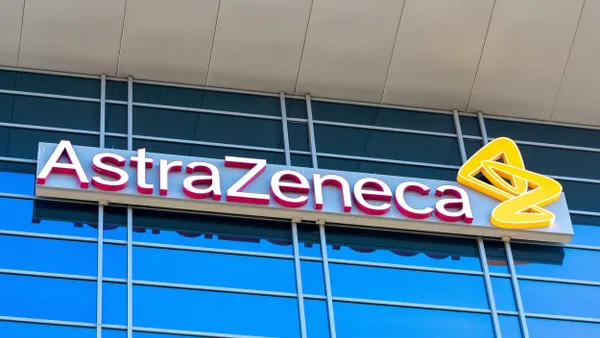Dive Brief:
- Roche has stopped enrolling and treating patients in three studies of the gene therapy Elevidys following the death of a 16-year-old patient with Duchenne muscular dystrophy.
- The European Medicines Agency asked for the temporary clinical hold until researchers and regulators finish an analysis into the young man’s cause of death, Roche said in a letter to the patient community this week. Sarepta Therapeutics, which developed the therapy and licensed it to Roche in markets outside the U.S., announced the death last month.
- The patient suffered from acute liver failure and also had a recent cytomegalovirus infection that might have contributed to his death. Sarepta noted that no other cases of acute liver failure leading to death had been seen in the more than 800 patients treated with Elevidys to date, though liver injury is a known possible side effect for Elevidys and similar gene therapies.
Dive Insight:
The clinical trial holds at European sites represent another setback for Elevidys, which has seen strong sales even as questions persist about its benefits. The Food and Drug Administration originally approved Elevidys for a limited population of Duchenne patients in 2023 and then expanded its clearance the next year despite mixed results in testing of patients with the muscle-wasting condition.
News of the patient’s death in March sent Sarepta shares tumbling, and the slide continued Thursday, outpacing the larger market drop on the heels of President Donald Trump’s tariff announcement. Sarepta shares fell more than 7% to about $58 apiece in early trading. The stock traded above $100 before Sarepta announced the patient death on March 18.
“This is yet another unfortunate development for a story that cannot seem to catch a break,” Leerink Partners analyst Joseph Schwartz wrote in a note to clients Wednesday.
Still, he and other analysts said investors are now discounting Sarepta too much. “We acknowledge that Elevidys has taken a reputational hit as of late; however, the pendulum seems to have swung too far,” Schwartz said.
The clinical holds could delay study results and affect the ongoing review in Europe, but sales outside the U.S. would account for a relatively small portion of Sarepta’s revenue, analysts said. The holds only affect the enrollment and dosing of new patients; those who have already received the one-time treatment will still be monitored as researchers continue to collect data, Roche said.
The three trials affected include one called Envision, which is a key global Phase 3 study of non-ambulatory patients and those between the ages of eight and 17 who can walk. Analysts had expected data from that trial in 2027.
In the U.S., Elevidys is currently cleared for patients who are at least four years old and have specific gene mutations. The therapy has full approval for patients in that group who can walk and an accelerated approval for non-ambulatory patients that must be confirmed by the Envision study.












